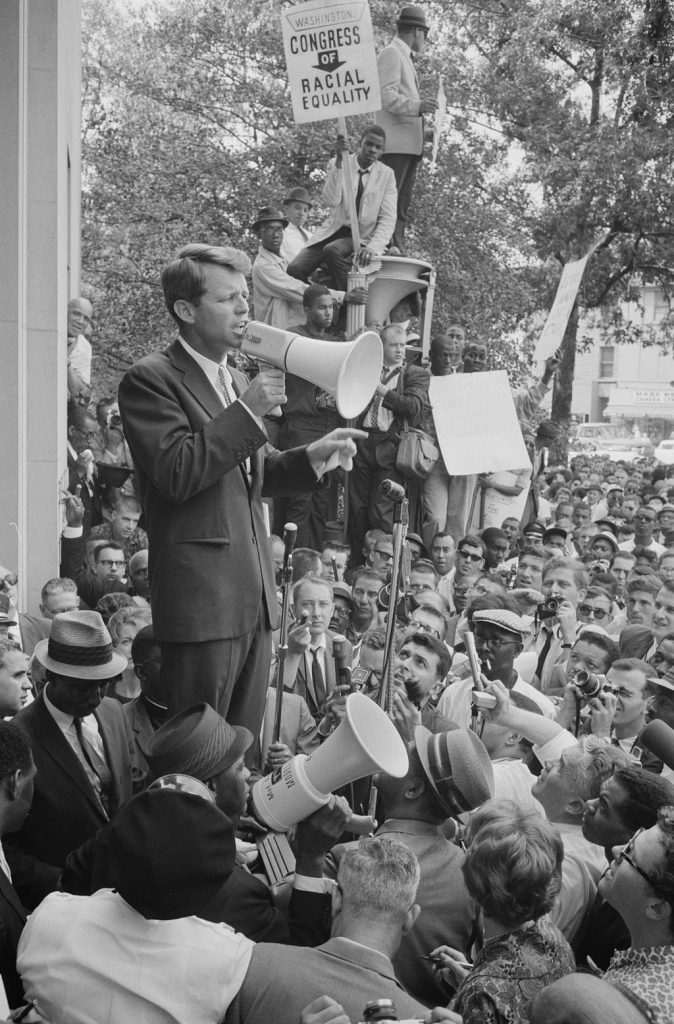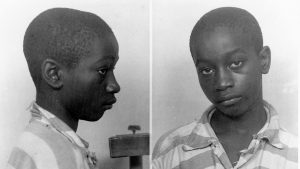“Like anybody, I would like to live a long life. Longevity has its place. But I’m not concerned about that now. … I’m not fearing any man. [I] have seen the glory of the coming of the Lord.” — Conclusion of Dr. Martin Luther King’s last speech, “I’ve been to the Mountaintop.”
April 4, 1968, Memphis, Tennessee. Reverend Martin Luther King Jr. was shot and killed in his hotel at only 39 years old. Throughout the Civil Rights Movement, he had been a prominent figure inspiring the American people to live in peace with one another. This reverend condemned violence and condoned harmony among his followers. This man confronted racism at its roots and cemented faith in our futures. This iconic figure, leading one of the greatest civil rights movements in history, had now been slain from an assassin’s bullet.1 And in the wake of his murder, grief and all of its sinister stages wiped away the light of hope. Chaos would reign on this day, and the dream of peace went into a spiraling descent.
Before he could be briefed on the atrocity that occurred, presidential candidate Robert F. Kennedy spent some time speaking to a crowd of students at Bell State University. His campaign was a month away from their first caucus in Indianapolis, and he wanted to demonstrate his abilities before his flight that same night. It wasn’t until after Kennedy offered a message of hope, saying he believed “the vast majority of the American people want to do the decent and right thing,” that the news reached him.2
With clenched fists, Mr. Kennedy listened to the chilling details of Dr. King’s assassination. The reverend was his ally, his friend. Undoubtedly, he felt lost, and after the plane took off, trapped. Robert couldn’t help but feel cheated. Despite the frustration the Kennedys and Dr. King faced while working together, Kennedy never hesitated to protect those whom he felt close to.3 Now his dear friend was dead, and all he could think about was his brother, Jack.

It had been less than five years since the heart-wrenching death of John F. Kennedy. Though the nation grieved at the loss of such a young and righteous leader, one would be hard-pressed to find anyone as defeated as Kennedy, or as his family called him, Bobby. The grief he felt both captivated and horrified everyone around him. To fully understand the torment of his brother’s assassination, one would have to see Bobby outside the public eye. Very few got close enough to see that “his eyes were haunted,” or that he resembled “a man who is just in intense pain,” like Ed Guthman and John Lawrence Seigenthaler did.4 Even fewer could share the experience of one Los Angeles Times reporter who happened to be at the wrong place at the wrong time. David Kraslow, bypassing security, found the president’s little brother sobbing as he hid away from the media. “It really got me,” he would later write. “I had never seen the man cry.”5
By the time the plane landed, Dr. Martin Luther King Jr. was confirmed deceased. Authorities were panicking. The Kennedy campaign was receiving phone calls from the city’s mayor about the potential dangers imposed by the outdoor rally that had been scheduled.6 He reasoned that the security could not be guaranteed while inside the city’s ghetto. At the same time, many within his campaign, including civil rights leader John Lewis, emphatically urged Kennedy to stay.7

John Lewis, like many others, heavily participated in RFK’s campaign because they believed him to be a “man of the people.” It was clear that the nominee’s position on domestic policy was in league with the civil rights movement. The political base for Robert Kennedy’s campaign was consistently made up of those who were stepped over by the rest of society. This former Attorney General and New York senator was a champion who helped the poor and doggedly sought equality for all Americans.8
At the same time, it was not just his stance on issues that attracted egalitarians to his side, nor was it his record of fighting the socioeconomic injustice that plagued many of the American people. In actuality, his success was based upon his understanding and intense compassion for others, the likes of which have rarely been seen from those in power. Truly, Kennedy was a humble man, and he recognized that he had been born with extreme privilege. While talking with a reporter, the former Attorney General claimed that if he wasn’t born in the Kennedy family, he would have ended up like the criminals targeted by the Department of Justice—his department.9
Yet, once again, the best testimonies pertaining to Kennedy’s softer side came from the people around him. Child psychologist Robert Coles was perplexed by Kennedy’s responses to and actions against poverty in the Mississippi river delta. Because they had worked together, Dr. Coles noted that Kennedy had a very soft shell despite his reputation as a pragmatist. Kennedy’s concern for the people in this region stemmed from childhood experiences and how he desired to be stronger in his faith.10 He often struggled with being both the misfit child in his “perfect” family and a devout Catholic man. Kennedy wanted to be tested like Dorothy Day and Cesar Chavez—two Catholic equal rights leaders—but struggled with his own vulnerability. “He had a willingness to put himself in the shoes of others, as well as walk in his own,” Coles would later write.11

Despite the risks involved, Kennedy was determined to give a speech that night. Ever empathetic, he could feel and understand the pain such a loss would cause the black community. After all, he had spent years learning to cope with the death of someone he looked up to and aspired to be like. If he decided to listen to the Mayor of Indianapolis and reschedule his rally, it wouldn’t change the fact that the people of this city would have felt as broken and as lost as he felt. If he decided not to speak tonight, there would only be more strife and hatred between people. He knew something needed to be done, or else people would get hurt. He knew Lewis was right.
This night was, without a doubt, one of the most stressful of his entire career. There were no police officers or security detail with the presidential candidate or his staff. Kennedy did not have enough time to write a speech.12 All he could do was walk among the people of this district and hope. This hope, one that filled his soul with purpose, was that he could reach into the hearts of these people and help lift the burden of their sorrow.13
Now, Kennedy took the stage. The audience was excited to hear their presidential candidate speak, prompting him to turn and ask, “Do they know about Martin Luther King?” It was one thing to relate to a bad experience with others, but Kennedy now realized that he needed to announce the situation as well. Worse still, he did not know exactly what to say. Without thinking, he asked some of his supporters in the crowd to lower their signs. For tonight, he did not need their support but their understanding.14
“I have some very sad news for all of you, and that is, that Martin Luther King was shot and killed tonight in Memphis, Tennessee.”15
Cries of pain and anguish can be heard on tape, along with the claps of some who were unable to hear the announcement. The scene was ghastly, yet Kennedy pushed forward, preaching that the reverend died in his effort to promote justice and love for all people. Moving from there, he addressed both Black Americans and the American people as a whole during his speech.16
Looking forward, Kennedy warned of two paths the American people could take going into the future. One path, led by vengeance, would only further divide the American people against one another. The other, a path Dr. King followed to the very end, required people to make an effort to understand and love their neighbors. Later on in the speech, he sided firmly with Martin Luther King, stating,
“What we need in the United States is not division, … not hatred … not violence and lawlessness, but love and wisdom, and compassion for one another, and a feeling of justice towards those who still suffer in our country, whether they be white or black.”17
Furthermore, Kennedy made his own efforts to understand the resentment caused by such an abhorrent injustice. He attempted to empathize with his audience by recalling the pain he felt from Jack’s assassination, and he shared a favorite poem that helped him in the mourning process. Reciting Aeschylus almost by heart, he proclaimed that “even in our sleep, pain which cannot forget falls drop by drop upon the heart, until, in our own despair, against our will, comes wisdom through the awful grace of God.”18
Finally, after waiting for applause from the audience to end, Kennedy wrapped up his speech by asking everyone attending the rally that night to pray for the King family and for the nation to heal. He also asked them to be compassionate and remember that the majority of people in this country wanted to live together in peace.19
Years after this speech was made, Kennedy is still celebrated as one of the biggest proponents of civil rights within the 1960s. Unfortunately for him, and perhaps all of us as well, he too was assassinated just two months after Dr. King.20 It was another devastating blow for the Black community, losing someone as caring and compassionate as he was. Though he never did get to create any more changes in the Oval Office, the impact of Kennedy’s actions the night of Martin Luther King’s death kept hope alive for so many in that community.21
- African American Eras: Contemporary Times, 2010, s.v. “Martin Luther King Jr.’s Assassination Shocks the Nation,” 42-44. ↵
- Chris Matthews, Bobby Kennedy: A Raging Spirit (New York: Simon & Schuster, 2017), 325-326. ↵
- Chris Matthews, Bobby Kennedy: A Raging Spirit (New York: Simon & Schuster, 2017), 209. ↵
- Chris Matthews, Bobby Kennedy: A Raging Spirit (New York: Simon & Schuster, 2017), 254. ↵
- Larry Tye, Bobby Kennedy: The Making of a Liberal Icon (New York: Random House, 2016), 285. ↵
- Chris Matthews, Bobby Kennedy: A Raging Spirit (New York: Simon & Schuster, 2017), 327. ↵
- Chris Matthews, Bobby Kennedy: A Raging Spirit (New York: Simon & Schuster, 2017), 324. ↵
- Brian Dooley, Robert Kennedy: The Final Years (Stafford: Ryburn Publishings, Keele University 1995), 137. ↵
- Chris Matthews, Bobby Kennedy: A Raging Spirit (New York: Simon & Schuster, 2017), 213. ↵
- Chris Matthews, Bobby Kennedy: A Raging Spirit (New York: Simon & Schuster, 2017), 296. ↵
- Chris Matthews, Bobby Kennedy: A Raging Spirit (New York: Simon & Schuster, 2017), 297. ↵
- Chris Matthews, Bobby Kennedy: A Raging Spirit (New York: Simon & Schuster, 2017), 326. ↵
- Larry Tye, Bobby Kennedy: The Making of a Liberal Icon (New York: Random House, 2016), 413. ↵
- RFK Speaks After MLK Killed | Flashback | History, video file, 5:30, YouTube, posted 2018, https://www.youtube.com/watch?v=_bDlET_gK68&feature=youtu.be. ↵
- Chris Matthews, Bobby Kennedy: A Raging Spirit (New York: Simon & Schuster, 2017), 326. ↵
- Chris Matthews, Bobby Kennedy: A Raging Spirit (New York: Simon & Schuster, 2017), 328. ↵
- African American Eras: Contemporary Times, 2010, s.v. “Robert F. Kennedy’s Speech Announcing the Death of Martin Luther King Jr. (1968),” 66-68. ↵
- African American Eras: Contemporary Times, 2010, s.v. “Robert F. Kennedy’s Speech Announcing the Death of Martin Luther King Jr. (1968),” 66-68. ↵
- African American Eras: Contemporary Times, 2010, s.v. “Robert F. Kennedy’s Speech Announcing the Death of Martin Luther King Jr. (1968),” 66-68. ↵
- Encyclopedia of African American Literature, 2010, s.v. “Kennedy, Robert F.,” by Aghigh Ebrahimi. ↵
- Brian Dooley, Robert Kennedy: The Final Years (Stafford: Ryburn Publishings, Keele University 1995), 9. ↵



34 comments
Victoria Castillo
Great article! The way it is written, making it appear as though John F. Kennedy was the one personally telling his grievances of what happened to King and his brother just makes it seem more alive. While I knew he felt sad over MLK I didn’t know that they were friends or close to one another, so to learn that he lost two people he cared about to assassinations is just horrible.
Sierra Christa
This was a very well written and descriptive article. It truly capturatured ad emphasized the role Robert Kennedy, Martin Luther King Jr and John F. Kennedy all played during the civil rights movement. I have heard Robert Kennedy’s speech when he told the crowd about the murder of MLK and it is heartbreaking. This article does a great job showing how close they were and the impact it made.
Maggie Trujillo
I have heard about the speech Robert Kennedy made after MLK was assassinated; however, this article was able to go more in-depth about what occurred before, during, and after his speech. It is heart wrenching to read how much MLK’s assassination had on Robert Kennedy – especially since it was so recent after his own brother, President Kennedy, was assassinated. I also appreciate Robert Kennedy not taking the mayor’s advice and giving that speech that day because we wouldn’t have known what might have happened if he didn’t.
Danielle Sanchez
This article was well written! Presidential candidate Robert Kennedy listened to the chilling details of Dr. King’s assassination. Robert’s dear friend was dead which made him think of his brother. This brought Robert Kennedy to tears. No matter the risk he would give a speech the night of the assassination of Martin Luther King. This night would be stressful since there would be no protection. Nonetheless Kennedy gave the speech.
Eugenio Gonzalez
Before reading this article, I knew that RFK and Dr. Martin Luther King shared many views, but I would never imagine that they were close to each other. The article does a great job of describing how the loss of Dr. Martin Luther King affected RFK. I would also like to highlight the article’s title because it describes what RFK was going through during his campaign and the intention he had of giving hope.
Veronica Lopez
Personally I never knew Martin Luther Kind Jr. and Robert Kennedy were alive in the same time. This article does a good job on explaining what events occurred in RFK’S campaign. I also found it particularly interesting that Kennedy acknowledged the murder of Martin Luther King Jr. in his speech. And he proceeded to talk although he was heartbroken.That takes a lot of courage and I admire that.
Eric Hernandez
I think this article is very heart warming because it showed that everyone was into Martin Luther King’s cause and they were devistated by his death and end of hid fight. They also continued to take over and fight for his cause and also spread awareness of who he was. It was also very nice to see that someone big like Kenedy and his supporters also got involved.
Lesley Martinez
This article does a very well job of emphasizing the importance of the relationship between Dr. Martin Luther King and Robert F. Kennedy. They were both great leaders and advocates for civil rights and were able to be a voice for those that were not being heard. It’s heartbreaking to know that these two significant individuals were assassinated, but like Kennedy said there are two paths the American people can make, vengeance or understanding and loving one’s neighbors. Great article!
Giselle Garcia
This article gave great detail about Robert Kennedy’s speech and how close he was to Martin Luther King Jr. I didn’t know he was an ally with MLK and how involved he was in supporting the Civil Right’s Movement. Reading how much grief and strength there was in Kennedy’s speech is moving. Kennedy really understood what the community was going through, as he too felt the loss of his own brother and wanted to give hope.
D'Hannah Duran
This is a really well written article. I didn’t know Robert Kennedy had made a speech the day of Martin Luther King’s assassination. It must have been so hard to loose have lost his brother then to have lost once of his closest allies. It makes sense that they were allies since they both were rights activists and both had waned to see change in the world. I wonder what he world would have been like it Robert Kennedy, John Kennedy, and Martin Luther King would have still been alive.